At Reykjavík Pride last year, amongst all the rainbow tutus and face paint for sale all over the Icelandic capital, a T-shirt emblazoned with “Skortur á Hommum Íslandi á” sold out before the parade started.
Visiting the city on a promotional trip that Icelandair hosted for international LGBTQ+ journalists, I rushed to buy the second-last shirt, not even knowing what the words meant. I trusted the clerk at the Pride HQ store who told me, though it was hard to explain, that it was appropriate for a Pride parade. I eventually had to ask a young restaurant server what it literally meant.
Translated roughly as “There is a shortage of gays in Iceland,” the T-shirt was a cheeky dig at comments made last summer by Iceland’s deputy director of public prosecution, Helgi Magnús Gunnarsson. Following a discussion about an asylum seeker who had been rejected by the government because he was believed to be lying about his sexuality, Gunnarsson made a since-deleted post to Facebook about LGBTQ+ asylum claimants: “Of course, they are lying. Most people come here in search of more money and a better life. Who wouldn’t lie to save themselves? Apart from that, is there any shortage of gays in Iceland?” (The shirt, in a sarcastic way, answers: No, there’s not. More LGBTQ+ newcomers, please.)
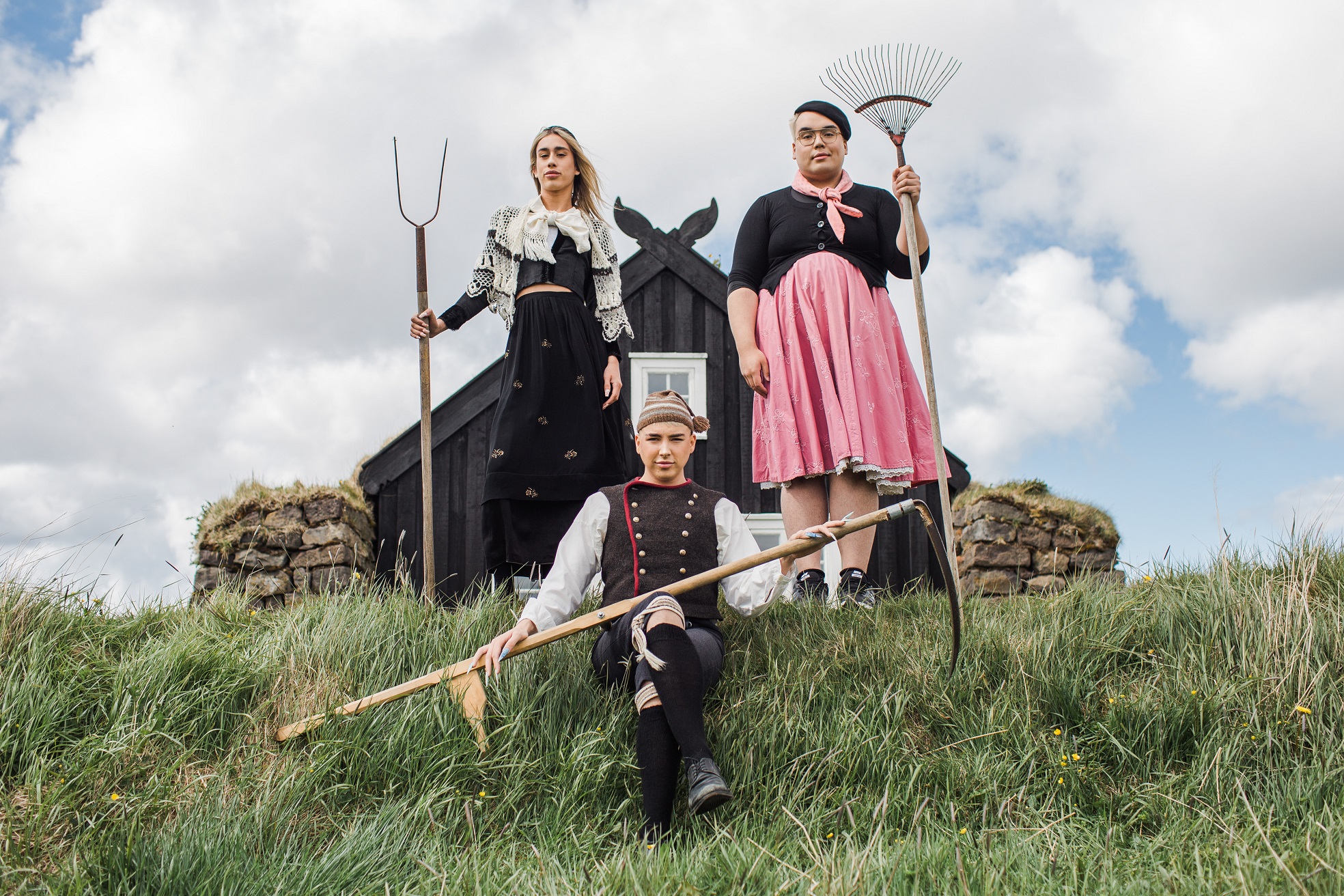
Credit: Courtesy of Visit Reykjavík
Though Gunnarsson quickly clarified that he has nothing against LGBTQ+ people, popular opinion wasn’t buying his apology. Samtökin ’78, Iceland’s national queer association, reported Gunnarsson to the police for hate speech. A few weeks later, state prosecutor Sigríður Friðjónsdóttir, Gunnarsson’s boss, told the media that Gunnarsson had been reprimanded for his comments, stating that they “discredited his work as a deputy state prosecutor, the office of the state prosecutor and the prosecution in general.”
Though no country is perfect when it comes to laws and attitudes affecting the lives of LGBTQ+ people, Iceland ticks more boxes than most. Perhaps they’ve set out to be world leaders; they did, in 2009, elect Jóhanna Sigurðardóttir as the modern world’s first out head of government. Or perhaps it comes more easily to a small, wealthy, relatively homogenous society, living in a cold climate, where everybody, by necessity, has to be on good terms with their neighbours. The country has one of the world’s lowest crime rates, which provides a broad sense of security and safety that includes LGBTQ+ people.
With a population of just 373,000 people—fewer than Malta, Bahamas or even the Canadian province of Newfoundland—it’s estimated that more than 30 percent of Icelanders attend Reykjavík’s Pride celebrations every year. The parade itself must involve a sizeable chunk of Reykjavík’s 123,000 inhabitants, who then stroll over to Hljómskálagarður Park, where queers and straights in all configurations—families picnicking with grandparents, gaggles of teens, circuit-party boys dressed for the nighttime in daylight—gather to listen to music ranging from folk to Europop. Pride has become a national unifier, something everyone can rally around. Throw in the more than two million international visitors Iceland gets each year, a decent percentage of them LGBTQ+, and one could seriously wonder if Iceland would ever face a shortage of gays.
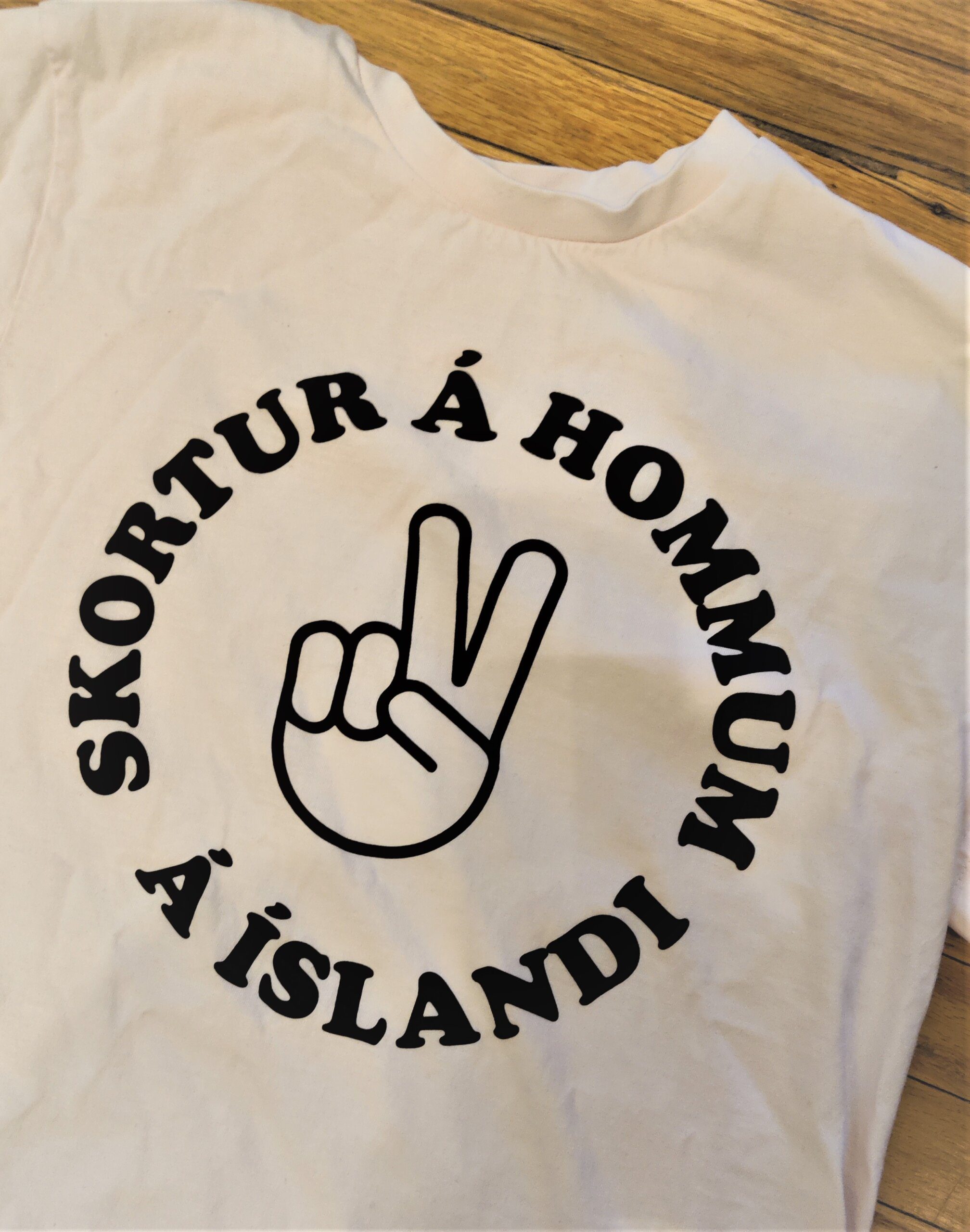
Credit: Paul Gallant
It’s usually the otherworldly landscape that draws visitors—oh, and Björk, of course. But the statistics are particularly appealing for those who want to feel completely safe and comfortable being themselves. According to the LGBT Equality Index, Iceland is second only to the Isle of Man, which has a population of only 84,000, when it comes to being gay-friendly. They are number one in surveys about the acceptance of LGBTQ+ people and positive opinions of LGBTQ+ parents. Authorities take homophobia very seriously. Incidents of homophobic bullying by schoolchildren last fall became a national story, with politicians of all stripes, at all levels, stepping up to condemn it.
Yet Iceland isn’t always a trailblazer. Though it decriminalized homosexuality in 1940, after Peru, but well ahead of Canada and most of the U.S., it did not legalize same-sex marriage until 2010, lagging behind countries like the Netherlands, Canada, South Africa and Norway. Iceland’s approach to LGBTQ+ progress has been unique, though, because it has been mostly driven by strong support from politicians in the national legislature, rather than by polarizing court decisions. It’s a consensus-y country and that has sometimes meant waiting for everybody to be on the same page. As other countries avoid votes on human-rights issues—perhaps correctly fearing that the majority might pick on the minority—the legalization of same-sex marriage in Iceland was passed unanimously by its Parliament. (Prime Minister Sigurðardóttir, who left office in 2013, married her partner Jónína Leósdóttir the same year, making them one of the first same-sex spouses in the country.)
The country also seems to know when it makes mistakes. Policies passed by Sigurðardóttir’s government in 2012 that were meant to be supportive of transitioning were soon seen as placing an onerous burden on trans people—they required an 18-month process and approval by a committee before a person could medically or legally transition. This law was changed by a unanimous vote with the passing of 2019’s Gender Autonomy Act, which brought the country’s policies around transition to the norm established by other progressive countries. Trans people can now change their legal gender without having to receive a medical and mental disorder diagnosis or undergo gender-affirming surgery.
“The new law updates some very specifically Icelandic, extraordinarily rigid rules about names and gender.”
The act also allows individuals to choose a third gender option, “X,” on official documents. And it updates some very specifically Icelandic, extraordinarily rigid rules about names and gender. Now, instead of, for example, Alex Jónsdóttir (literally, Alex, daughter of Jón) or Alex Jónsson (Alex, son of Jón), the configuration Alex Jónsbur (Alex, child of Jón) is permitted. Though Iceland continues to regulate names—there are some things you still can’t call a baby—the act erases the distinction between male and female names. “Alex” used to be only for boys.
Iceland still has onerous restrictions on the donation of blood by men who have sex with men, but that may change this year. Following more than 20 countries that have already done so, last year the government introduced a bill to ban conversion therapy—that is, so-called “treatments” to get people to change their sexual or gender identity. Few countries have made all these changes to improve the lives of LGBTQ+ people, and made them with so little controversy.
Although laws and policies give nationals and visitors confidence that they’re respected in Iceland, that’s only part of the country’s LGBTQ+ appeal. The Icelandic character—egalitarian, inclusive, informal and irreverent—makes it easy to meet fellow queers. In fact, it can be hard to avoid them. At a party during Reykjavík Pride last August, I noticed a group of especially glamorous people standing near the bar and sheepishly went up to them to ask, in English, who they were. Not only did they welcome me into their circle and introduce themselves—an actor/singer, a film director, a fashion designer, a computer scientist—they showed me photos of what/who they were wearing in the Pride parade and said hi when I ran into them repeatedly over the course of the weekend. When Icelandic multi-hyphenate entertainer Bjarni Snæbjörnsson took the stage at Hljómskálagarður Park for the Pride concert, I felt like I was seeing a buddy wow the crowds.
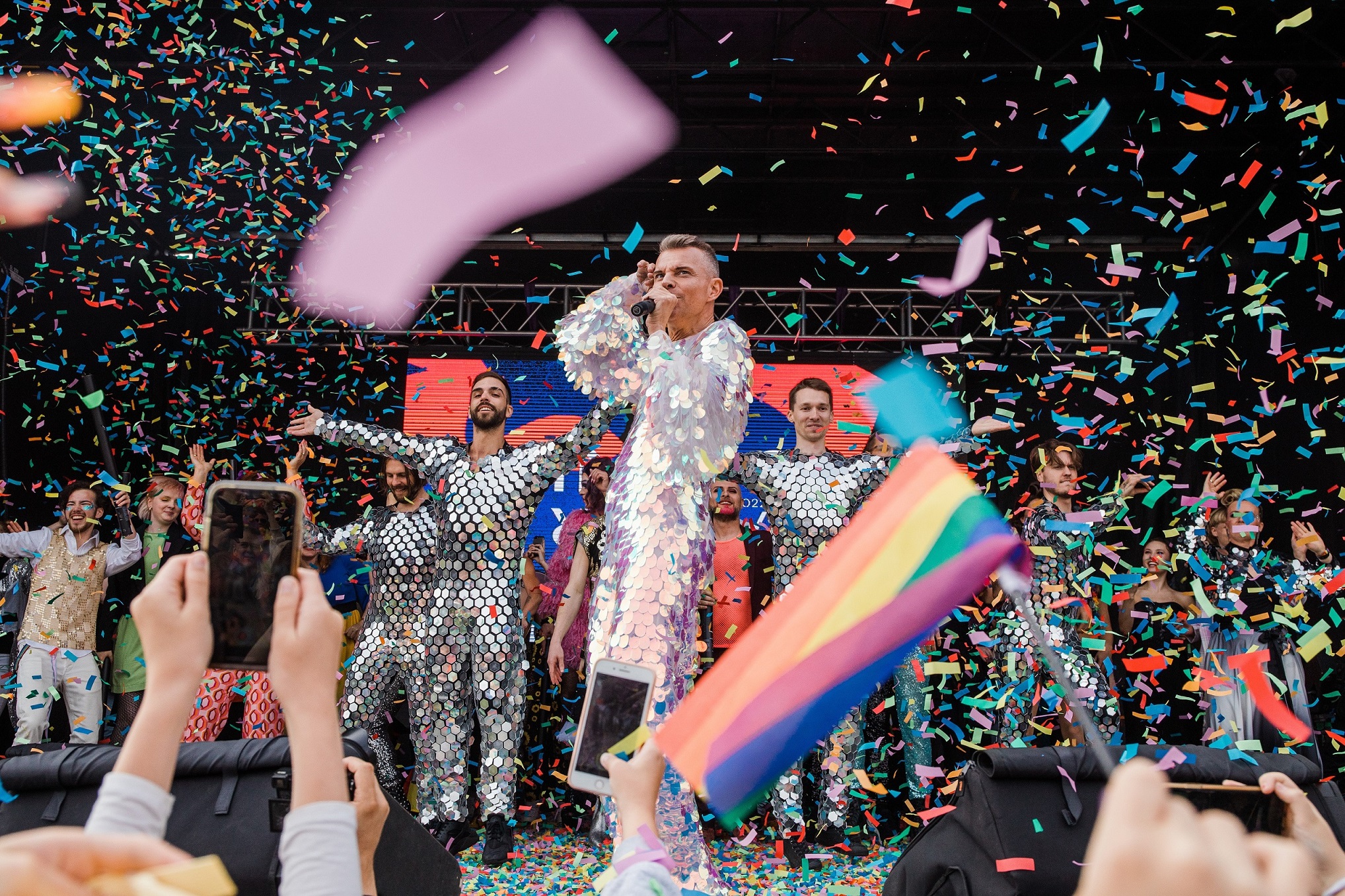
Credit: Courtesy of Visit Reykjavík
During a visit to Chromo Sapiens, a cavernous immersive permanent art installation in Reyjavík by the artist Hrafnhildur Arnardóttir, aka Shoplifter, the artist herself showed up in person at the gallery/gift shop/coffeeshop, called Höfuðstöðin. Best known for her synthetic hair installations (she made the hair mask Björk wore on the cover of her 2004 album Medúlla), Arnardóttir had none of the pretentions one might expect from an artist whose work has shown at the New York’s Museum of Modern Art and the Venice Biennale. After a chat where I mostly wanted to ask questions about her friendship with Björk—where had the magical creature of pop spent Pride? Sorry, which restaurant?—Arnardóttir told me she’d look me up next time she was in Canada.

Credit: Víðir Björnsson, Courtesy of Visit Reykjavík
Which is to say that living in a small country is not so different from living in a small town. At the closing party for Reykjavík Pride, which had all the convivial glee of a wedding dance, I watched someone rushing around for most of the evening, talking to people and checking on things. When he finally stopped, I went up to ask him what he was doing and discovered that he was Gunnlaugur Bragi Björnsson, the president of Pride. It’s a volunteer position and, without me asking, he told me part of his job is saying no to corporate sponsors. “People don’t like to see it in the parade,” he said. At the same time, he’d like to have enough budget to hire a couple of staff people to do the more tedious organizational tasks. “Volunteers should be doing the fun things.”
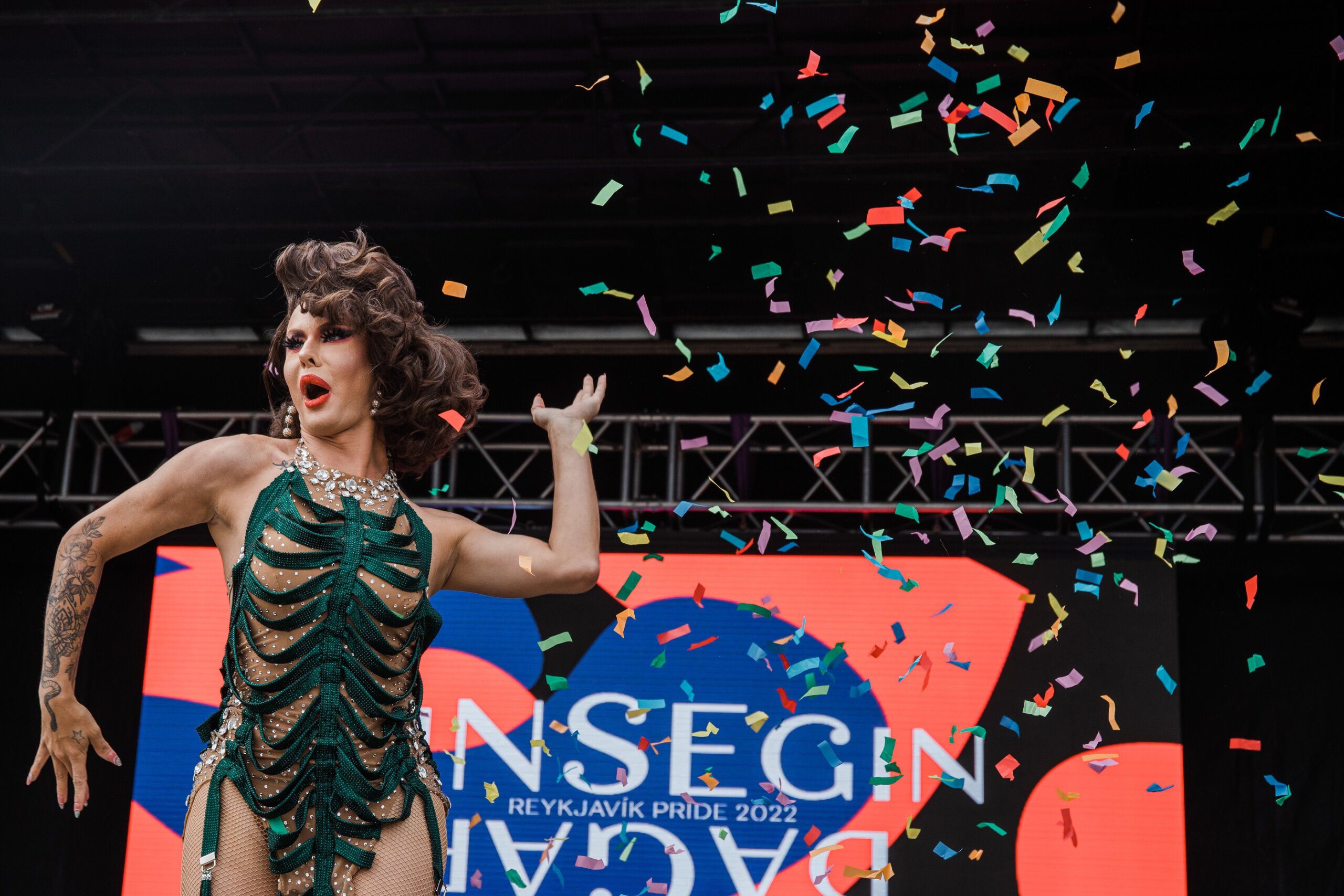
Credit: Courtesy of Visit Reykjavík
On my last day in Reykjavík, I ran into Trinity the Tuck, co-winner of Season 4 of RuPaul’s Drag Race All Stars, who had flown in to perform at the Pride show, Drag Djók. Though Trinity, as you would expect of a savvy visiting celebrity, raved about how much she loved Iceland and wanted to come back, I was struck by how much she praised the local queens. And I remembered how, at the show, the Icelandic performers were given as much or more fanfare than this visiting international star. It was the Icelandic way. Sure, shine in your own way. But also let other people shine in their own way.
Queer Iceland 101/Reykjavík Pride
1. Reykjavík Pride festival: August 8–13, 2023.
2. Samtökin ’78: The national queer organization.
3. Trans Ísland: The national trans organization.
4. 101 Reykjavík: The postal code for downtown, where the rainbow streets, LGBTQ+ nightlife and most hotels are located.
5. Kiki queer bar: The biggest permanent LGBTQ+ club in the country.
6. Direct flights: Icelandair offers year-round direct flights to Reykjavík from Boston, Chicago, New York, Seattle, Toronto and Washington, as well as many European destinations. Season flights are available from cities including Baltimore, Denver and Vancouver. Many travellers will use the airline to fly to another final destination with a free extended stopover of between one and seven days in Iceland. Delta and American Airlines also have direct flights from various U.S. airports.
Look for our new queer travel newsletters, launching in March.
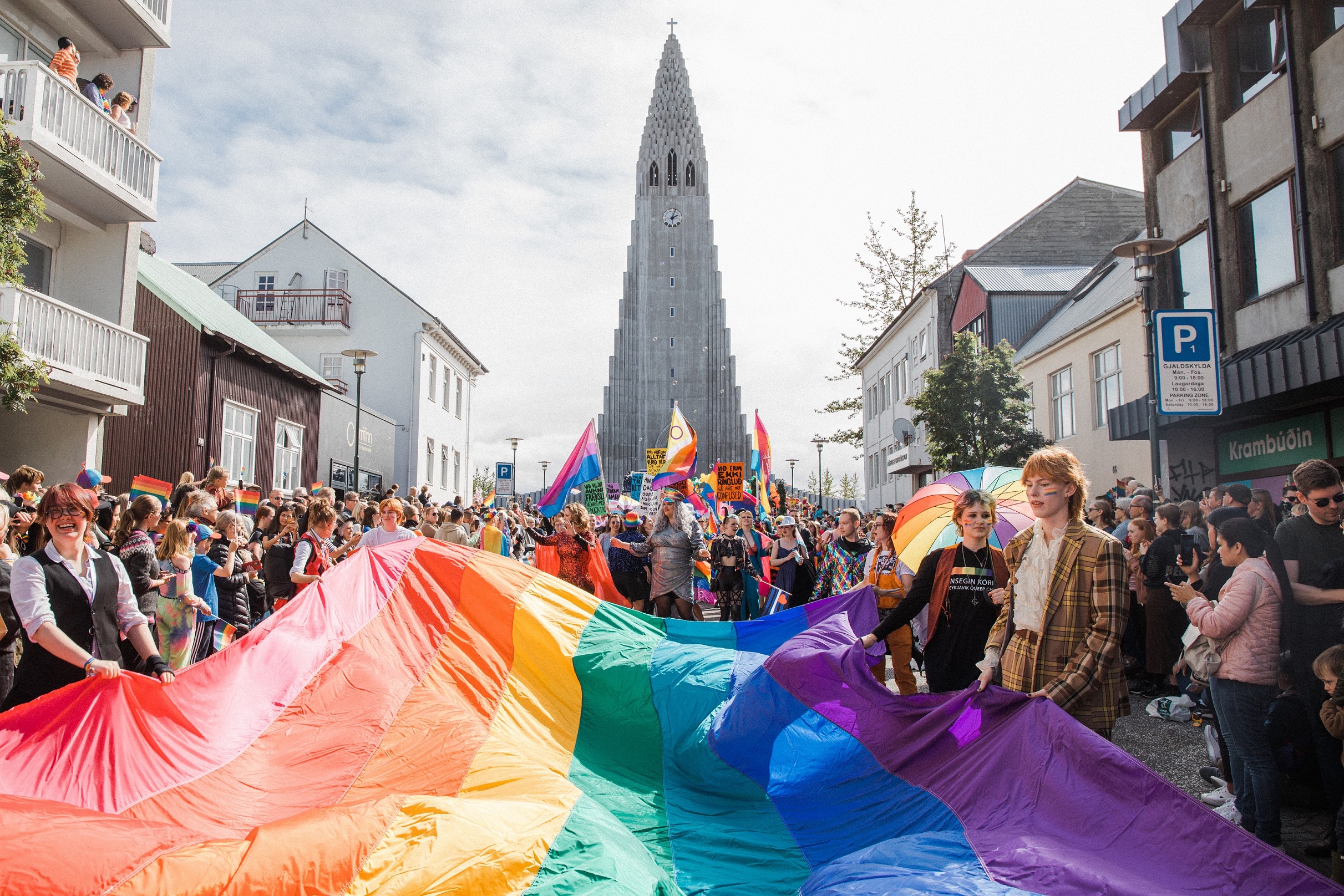

 Why you can trust Xtra
Why you can trust Xtra